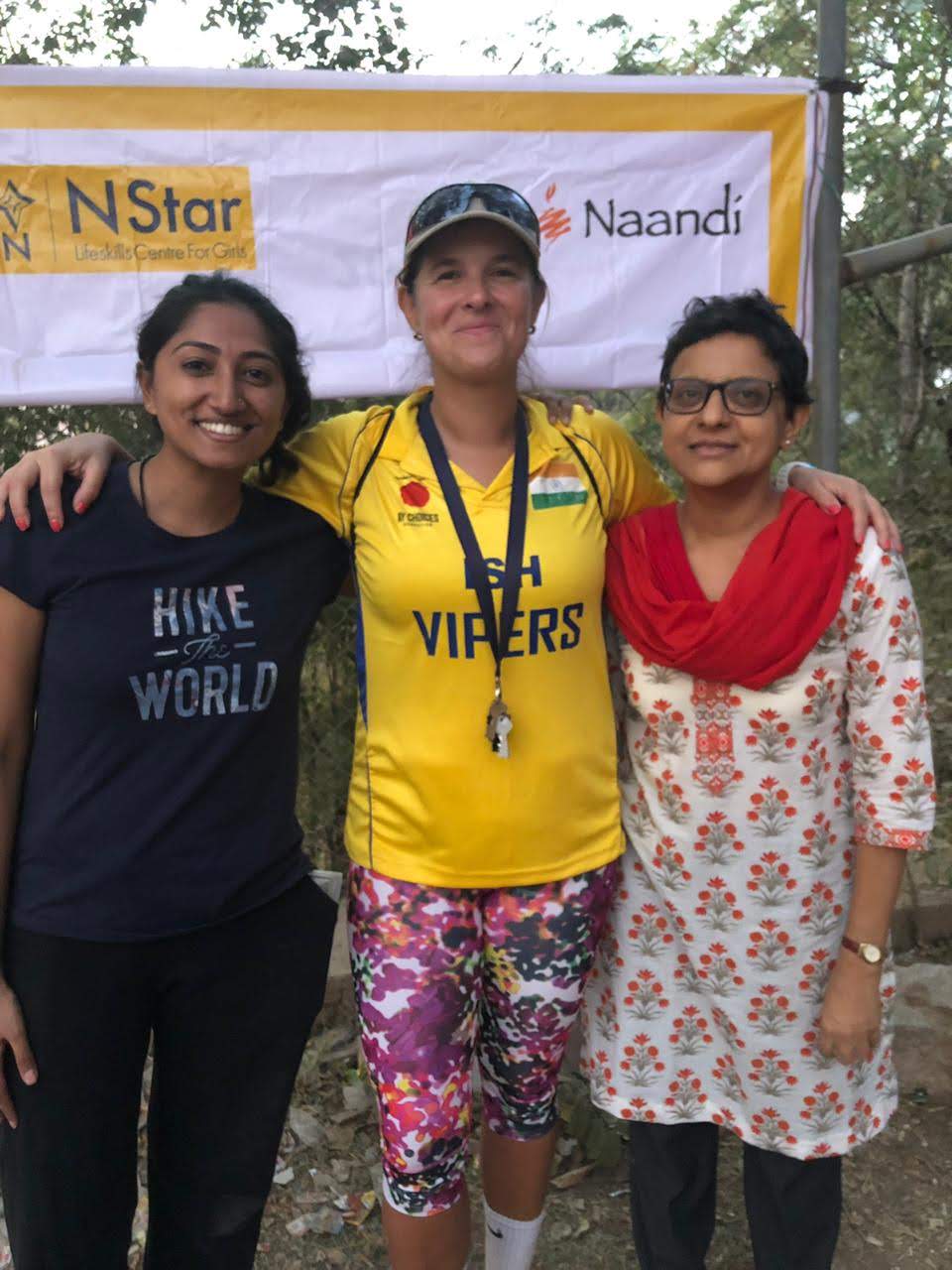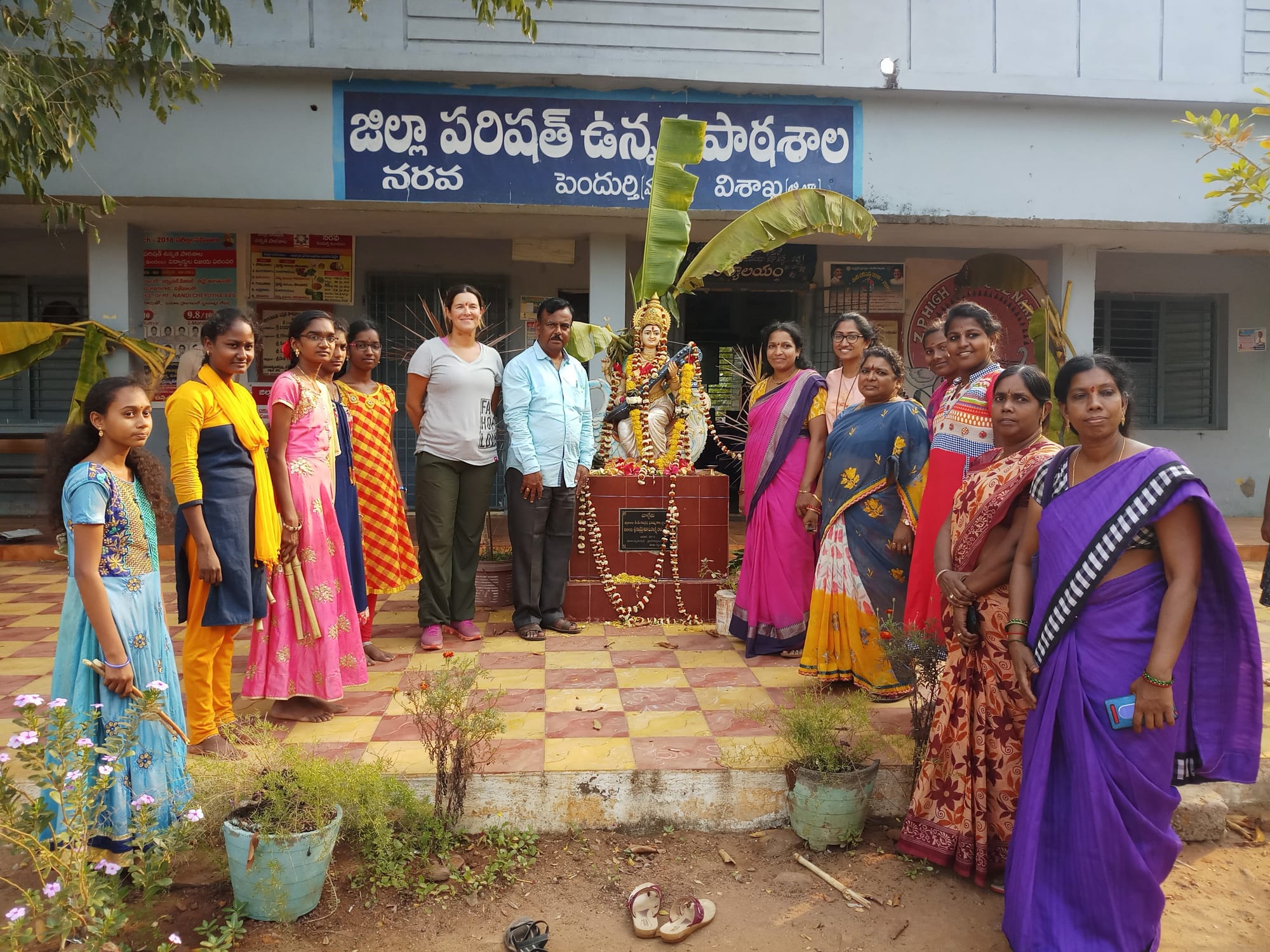Developing Partnerships to Build Sustainable Sport Endeavours
Developing Partnerships to Build Sustainable Sport Endeavours
A Strong Case for the need of partnerships between Sport and Non-Sport Sectors
Had someone explained to me three years ago, that I would be involved in one of the biggest grassroots sport programs for underprivileged girls in India today I would never have believed it. Although I had a strong international sport management background, I had never been to India yet, I knew very little about the world of development in India and I had never even tasted my first bowl of dal!
But a meeting at the NGO, The Naandi Foundation, with the CEO Manoj Kumar in November 2018 in Hyderabad, India changed everything. The Naandi Foundation is one of the largest and fastest growing social sector organisations in India working to make poverty history. The word Naandi is Sanskrit meaning “a new beginning.” One of their main projects is “Nanhi Kali” with the aim to provide primary education to underprivileged girl children in India. But, they had little experience in youth sport development programs.
What both Mr. Kumar and myself had in common was the wonderful belief of the incredible benefit of sport for youth and the right for these underprivileged girls to be exposed to this. Thus, we began collaborating together to create a sport program for over 150 000 these Nanhi Kali girls.
As we work on building this pioneering grassroots programme, the following is a reflection on both the huge benefits and certain challenges of sport and non-sport sector collaboration.
Benefits of Sport and Non-Sport Collaboration
Cross Discipline Knowledge Sharing
Although there is a lengthy history of partnerships between sport and governments, there is a need for added expertise in the realm of sport for development (SFD). So often, these SFD projects are taking place in areas of the world, where cultural, political, social, economical sensitivities are heightened. There are so many obstacles and challenges involved in these projects that require many non-sport related resources and knowledge. Conversely, this non-sport sector is in need of sport specialists to help explain and promote the multiple benefits of SFD programs and to afford the technical expertise to organise the sport specific events.
 GNW and Naandi
GNW and Naandi
Grassroots Investment
In order to help ensure the sustainability of sport and development projects it is crucial that the local people are engaged and invested in the project. Often, SFD projects are led and managed by outside sport experts. Although these projects have the greatest intention and offer many benefits to the local populations, it can be more challenging to maintain the momentum and sustainability of the project. If there is a change in commitment from the outside group for various understandable reasons; such as financial support or change of personnel, the sustainability of the project may be severely affected. There is a need for the local organisers to have ownership of the project. If sport specialists and non-sport sectors can collaborate together and lead the project, the longitude of the project is more likely, helping lead to a sustainable program. Once again, the strength of the non-sport sector which can have far reach into the community on various levels and have built strong networks of government and local support, are ideal partners with sports specialists.
Challenges of Sport and Non-Sport Collaboration
Non-Sport Sector
One of the biggest challenges is obviously to find local non-sport sector organisations that are willing, able, and can identify with the benefits of developing a sport program. So, often organisations in developing parts of the world struggle with their own financing and have little funds to dedicate towards building another program. Also, they may be battling cultural norms that place sports very low on the lists of important social and economic needs of their local people.
Sport Sector
The sport sector must continue to work on developing the soft leadership skills needed to collaborate with non-sport sector organisations . Flexibility is a key characteristic, as together you try to navigate all the intricacies of these complicated networks. Sport goals and objectives must be malleable to stretch and bend to the needs and realities of all stakeholders in the project. Also, the sport sector has the huge responsibility of continuing to invest in and to promote the virtues of the field of sport and development. Other sectors will only start to believe in the power of sport if we continue to grow this power!
Celebration time
If indeed, collaboration between sport and non-sport sectors may be a key in helping to develop sustainable SFD program in various parts of the world, the international sport community must continue to applaud these initiatives. Non-sport organisations, such as The Naandi Foundation, should be recognised by international sport for their immense commitment to SFD and should be applauded for dedicating people, finances and energy to help sport reach 150 000 girls.

If you would like to hear more about the Nanhi Kali Sports project or would like to share your experience of working with a non-sport sector organisation we would like to hear from you. (lisa@globalnomadsworld.com) #GNW